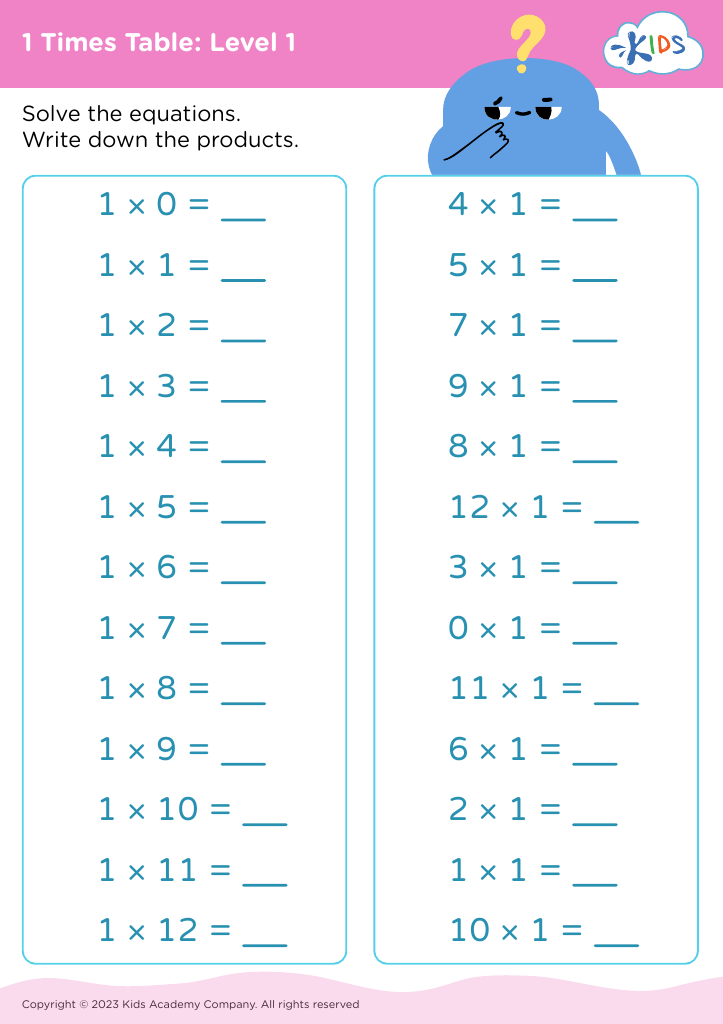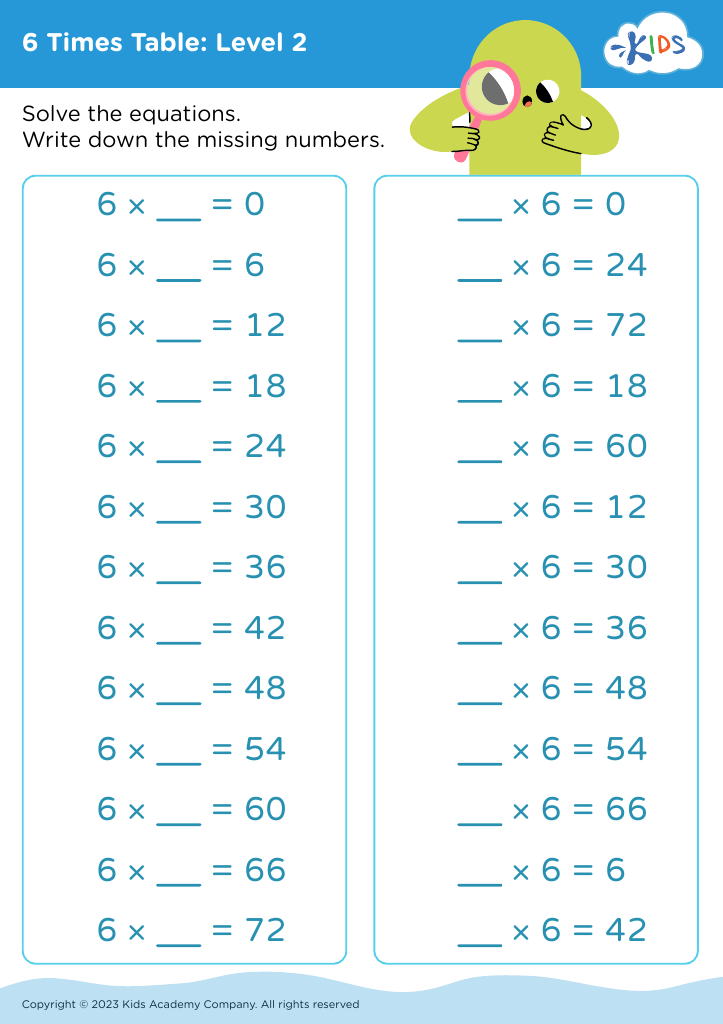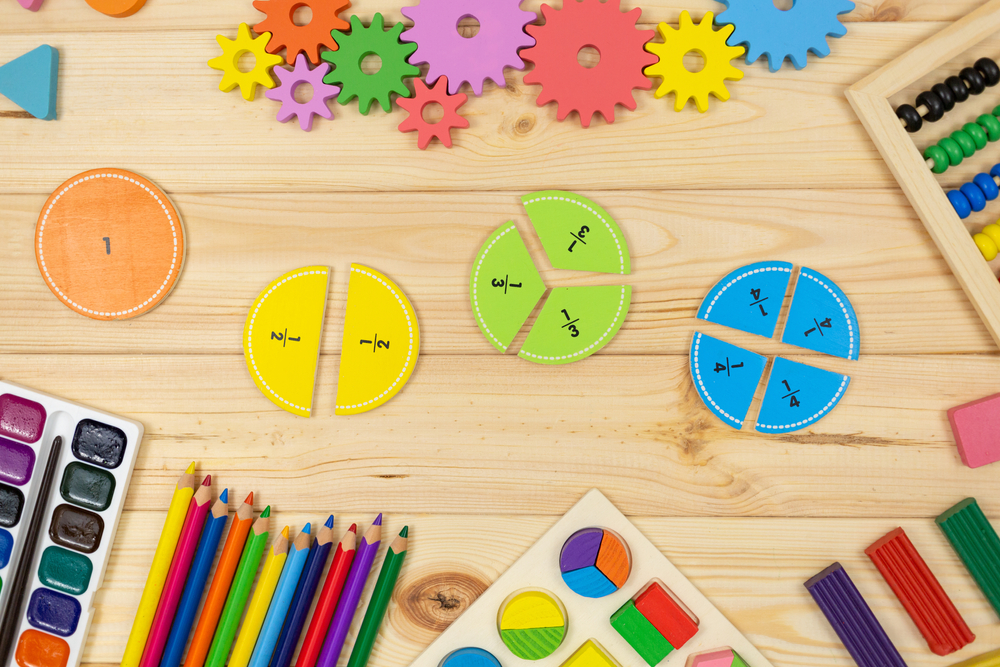Learning times tables Math Worksheets for Ages 5-9
3 filtered results
-
From - To
Looking to boost your child's math skills? Our "Learning Times Tables Math Worksheets" for ages 5-9 are perfect for making multiplication fun and engaging! Designed with colorful visuals and age-appropriate exercises, these worksheets help young learners master their times tables with ease. Each sheet features interactive problems that reinforce learning while developing confidence in math. From simple to more complex tables, our resources cater to varying skill levels, ensuring every student can thrive. Plus, they’re printable for convenient use at home or in the classroom. Start your child's journey toward math mastery today with our engaging times tables worksheets!
Learning times tables is essential for children aged 5-9 as it establishes a strong foundation for their mathematical skills. Mastery of these fundamental concepts not only enhances computational proficiency but also boosts confidence in their abilities. Early familiarity with times tables aids in the transition to more advanced math topics, such as multiplication, division, and even fractions, as children advance in their studies.
Moreover, understanding times tables can improve problem-solving skills. By recognizing patterns in numbers, children are better equipped to tackle math challenges, fostering a sense of achievement and enjoyment in learning. It also encourages mental math, which is crucial for everyday calculations and boosts cognitive development.
For parents and teachers, prioritizing times tables can create a shared educational goal, reinforcing their involvement in a child's learning journey. Regular practice and creative approaches, such as songs, games, or visual aids, can make learning engaging and enjoyable, making it less of a chore and more of an adventure.
By nurturing these critical foundational skills at a young age, parents and teachers set children on a path to academic success, equipping them with the tools needed to handle future math subjects with confidence and ease.




















